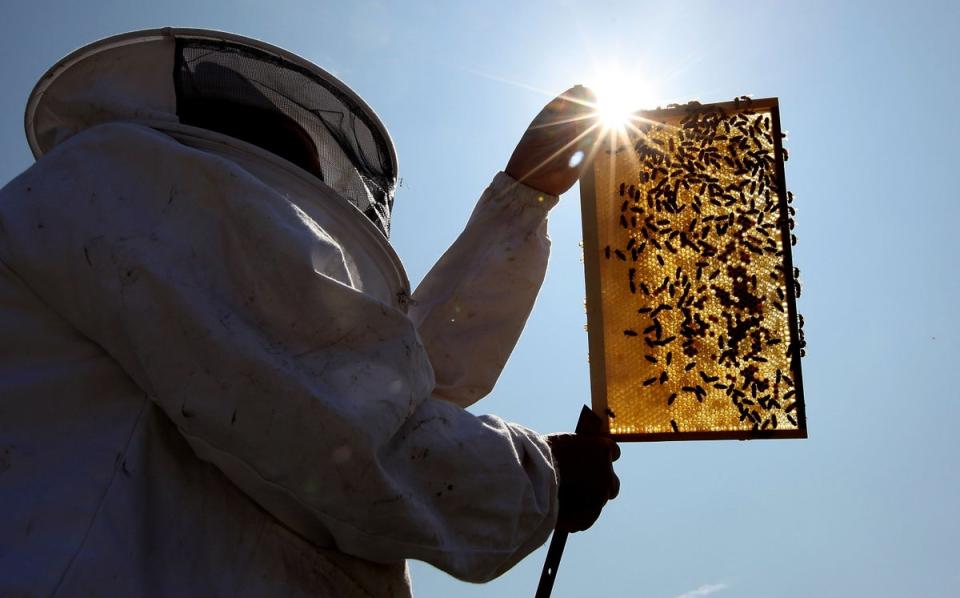World’s first vaccine for honeybees gets US government approval

The world’s first vaccine for honeybees has been given a conditional license for use by the US Department of Agriculture to protect the insects from a deadly bacterial disease.
Honeybees are a critical component of the world’s food supply and are responsible for nearly a third of global production as several crops rely on insect pollination for high yields.
In the US alone, some estimates suggest honeybees are responsible for the annual pollination of at least $17bn worth of crops.
A majority of fruits, nuts and vegetables are pollinated by bees and about 70 of the top 100 human food crops that supply nearly 90 per cent of the world’s nutrition are pollinated by bees, according to Greenpeace.
Honeybees, in particular, are said to be responsible for $30bn a year in crops.
However, the American Foulbrood disease caused by the bacterium Paenibacillus larvae has impacted insect populations and can kill the bees in either their pre-pupal or pupal life cycle stage.
Studies have shown that the disease is spread via bacterial spores, capable of taking down an entire colony, and currently, the only widely used method to stop its spread relies on the incineration of bees, infected hives and equipment, researchers noted in a study, published in the journal Frontiers in Veterinary Science in October.
In the study, scientists showed that when the queen is vaccinated, there is an increased survival of infected honey bee larvae, compared to the offspring of unvaccinated queens.
“To our knowledge, this was the very first insect vaccine trial and constitutes a turning point in disease management in insects,” scientists wrote in the study.
The new vaccine, developed by Dalan Animal Health, contains killed whole-cell Paenibacillus larvae bacteria which is administered to the bees by mixing it into queen feed that is consumed by worker bees.
The vaccine, according to the company, is incorporated into the royal jelly by the worker bees, who then feed it to the queen.
Even though insects do not have antibodies, researchers said this method can prime their offspring against persisting pathogens.
“We are committed to providing innovative solutions to protect our pollinators and promote sustainable agriculture. Global population growth and changing climates will increase the importance of honeybee pollination to secure our food supply,” Annette Kleiser, chief of Dalan Animal Health, said in a statement.
“Our vaccine is a breakthrough in protecting honeybees. We are ready to change how we care for insects, impacting food production on a global scale,” Dr Kleiser said.
The company said it plans to develop vaccines for other honeybee diseases as well as “underserved industries, such as shrimp, mealworms, and insects used in agriculture”.

 money
money 